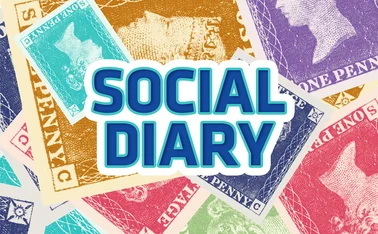
Roundtable: How to connect with the Millennial market

Need to know
- Millennials deem insurance as 'necessary', with 34% saying that it is "overpriced"
- Itemised is probably going to become bigger
- Social media plays a big role in terms of brand building in the insurance world
Penetration into the under-30s market remains low despite new app-based products and innovative solutions. Post, in association with GMC software, hosted a roundtable to find out what more the industry can do to address this
The insurance industry is awash with app-based products, innovative insurtech solutions and socially conscious start-ups all geared towards the under-30s, yet penetration into the demographic remains low.
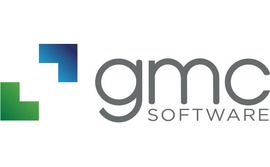 Post recently reported that less than one-third of Millennials deem insurance as 'necessary', with 34% saying that it is "overpriced" and just 12% believing insurance is "good value". Post teamed up with GMC Software to host a roundtable discussion on what insurers can do to catch the attention of the younger generation.
Post recently reported that less than one-third of Millennials deem insurance as 'necessary', with 34% saying that it is "overpriced" and just 12% believing insurance is "good value". Post teamed up with GMC Software to host a roundtable discussion on what insurers can do to catch the attention of the younger generation.
Axa’s marketing and insight director Jyoti Bird began the discussion by suggesting that rising living costs are locking Millennials out of the need for cover.
“It’s becoming increasingly challenging for that generation, because the age of buying a house, and having your own car, is getting postponed,” she said. “People are living with their parents for longer. They are unable to access houses and get onto the home insurance ladder.
“So rather than comprehensive home insurance, they might be more attracted to room insurance, say with six items for example. You might not wish to insure your trousers from Zara, but your MacBook, certainly would be very important.”
App offerings
US tech firm Trov, which provides an app-based contents insurance offering with Axa, has seen £6.84bn worth of items added globally since release, and is set to launch in the UK later this year.
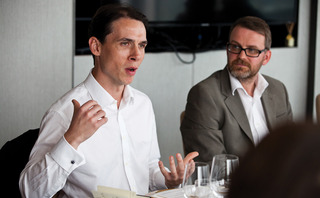 Trov's platform enables users to instantly turn insurance on or off for individual items. Like Bird, Trov believes Millennials need to be offered flexible solutions rather than traditional insurance.
Trov's platform enables users to instantly turn insurance on or off for individual items. Like Bird, Trov believes Millennials need to be offered flexible solutions rather than traditional insurance.
“If a user does need cover from that list,” said Bird, “they might decide, ‘actually I’ve got 50 things. All I want to insure is my grandmother’s ring and my expensive Mulberry handbag, and I don’t want to insure anything else’.
“And insurance is not about insurance, but it’s about being covered for the items you really care about. We think itemised is probably going to become bigger.”
Renaud Million, CEO of Spixxi, agreed: “I spent a lot of time talking to Millennials in London, and I’m one of them as well,” he said.
“The different lifestyle events such as buying a house or car being delayed or sometimes not even having that possibility, all adds up. I’m not sure my kids will even buy a car in the future. They might have different needs.”
GMC Software’s sales manager Simon Perry asked the group: “Younger people, they might value their iPhone more than they value their parents’ home, probably more than likely. How do you appeal to that? How are you going to get them into insurance, because that’s the feeder for further insurance, isn’t it? What happens is when they buy our product from one of you guys, it determines how they feel about insurance going forward.”
“They’ve become such a critical mass that you can’t afford to avoid them,” commented Direct Line’s product development manager Rob Crook.
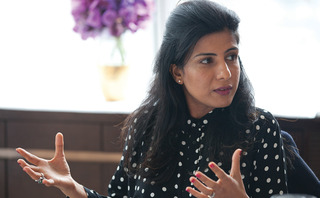 Columbus Direct recently launched a series of self-service kiosks in UK airports specifically designed for the Millennial market, focusing on the speedy delivery of travel insurance for last-minute travellers.
Columbus Direct recently launched a series of self-service kiosks in UK airports specifically designed for the Millennial market, focusing on the speedy delivery of travel insurance for last-minute travellers.
“When we put the digital kiosks into airports, we found that Millennials were the highest group to actually buy there, because you can buy it there and then in three minutes,” said Wild. “It’s quick, which is what they want. It’s easy to do, and they’ve got the coverage at the same price.
“They’ve got a very different view in terms of the experience that they want. It’s got to be quick. It’s got to be easy for them to take out, but they still are the biggest group that don’t engage with us.”
RSA’s director of digital Stuart Booth considered whether the demographic’s resistance to traditional methods of insurance was by virtue of being Millennials, or whether it’s simply because they are young.
“There’s some evidence of qualitative shifts, isn’t there?” he asked. “You’ve got macroeconomic factors that are changing reality for Millennials.
“You’ve got technology changes, and there’s discussion around whether digital natives’ brains are actually wired differently because they grew up surrounded by the internet and computers and, therefore, when they process information, they do it in small little chunks of stuff, with a shorter attention span.”
“While the generation may not be unique, their interaction with an insurer and their products is changing quite rapidly,” said Michael Lightfoot, GMC Software’s partner and alliance manager.
“Millennials potentially need to be approached differently, because of the way that they use insurance.”
Attracting the Millennials
Hiscox’s customer propositions manager Scott Murphy felt that there was more that the industry could be doing to attract younger customers. “It feels as though the ball’s very squarely in our court in terms of what we ask, and how we ask it,” he said.
“We’re trying to build something that gets you through that journey quickly and simply, but also gives you that right level of trust.
“It’s a case of finding at what level do you trust the product that you’re buying, but also something that doesn’t completely switch you off.”
Keith Mowbray, head of digital acquisition at Towergate, said: “We’re testing something similar around unratified property, which works for people who leave their homes empty for a certain period of time.
“We start off with a more conversational approach, trying to find out first off why the property is empty and what kind of requirements the customer has.
“We’re asking this kind of questions, just trying to really ascertain what level of cover they actually need so we can take the right steps depending on the circumstances.”
The group moved on to discuss branding, and whether Millennials are more likely to buy from an insurer named after a Beyoncé album, such as New York start-up Lemonade, than they are from more traditional brands.
 Wild said: “Our brand is quite contemporary. I mean, we’re sort of reassuring, but at the same time it’s all about being active in helping them lead their life and that appeals particularly to Millennials.”
Wild said: “Our brand is quite contemporary. I mean, we’re sort of reassuring, but at the same time it’s all about being active in helping them lead their life and that appeals particularly to Millennials.”
“Social media plays quite a big role in terms of brand building in the insurance world. We found you have to have a presence there to be able to appeal to that particular group.”
Million responded: “The thing is, where can they find trust? Is there a brand? Is it talking to someone professional on the phone? Is there a difference with a new
start-up disclosing that they store data, and the way they care about customers?”
Dylan Bourguignon, CEO of peer-to-peer start-up So Sure, said: "Because there's so little trust in the industry as a whole, data shows Millennials are prepared to try out the new brands.
“They’re prepared to try out something new, which is quite interesting. In a sector which is purely about trust, it says something about the incumbent industry.”
So Sure allows users to connect with friends who have also bought policies. Users are rewarded £10 into their “reward pot” for each friend added.
Users can connect to as many friends as they want, until their reward pot is equal to 80% of the value of their premium. At the end of the year, if no one in the network has claimed, then the reward pot is paid out to users.
Having released his flagship peer-to-peer insurance alternative Cycle Syndicate in 2014, Bourguignon claimed that he saw that reintroducing mutuality into the insurance equation could reduce claim frequency while providing high referral rates.
Marginalising older customers?
The group concluded by discussing whether by becoming too focused on Millennials, insurers were running the risk of marginalising older generations of customers. “It goes back to being customer-centric,” said Bird. “It’s not a case of whether they are 25 or 55.”
Bourguignon said: “This may be controversial, but I wonder whether in 10 years’ time people will be so bored of having everything digital, self-serve, by an artificial intelligence robot that is giving them all the answers, that the cool new thing at that point will be speaking to a human being.”
Booth agreed, commenting that people are already becoming bored with digitalisation, opting to try “digital detoxes”.
Million said: “We’re listening to Millennials because they’re the second biggest group, but only because they are in the vanguard of this change. So you’re listening to the Millennials, but actually it’s everyone. It’s just they happen to be the vanguard of that change.”
Booth commented: “We’re in the middle of a weird massive scale social experiment, aren’t we? The scale of the gathering of our personal data, and for Millennials in particular, is totally out of control.
“If any of us have some urge to use the Apple Store for example, do we all actually really know what on Earth is happening to our data and where it’s going, the vast amounts of it, and the implication that has as a society?
“And Millennials are the ones who are facing the brunt of this, because it’s fundamental now to their life.
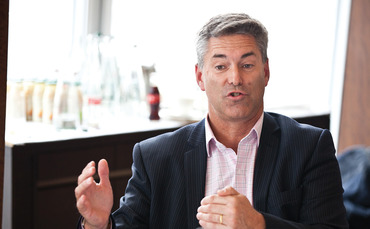 “So my guess is that expectations and commissions of using data is going to evolve extremely rapidly over the next few years as the full implications of all that data that’s out there become true.”
“So my guess is that expectations and commissions of using data is going to evolve extremely rapidly over the next few years as the full implications of all that data that’s out there become true.”
He added: “With various data breaches, it’s hard to know what will really happen over the next few years with data. It’s very hard to predict.
“Computers are everywhere, embedded all around our lives, so therefore the opportunities to engage with people are becoming ubiquitous, but they’re very diverse and hard to predict.
“Millennials use different communication mediums for different things, and people are becoming very savvy of when to use what. You also have personal biases. Some people will prefer face-to-face.
“As soon as you get to something that’s complex then you’re more likely to go to a human, aren’t you? In other countries, like in Scandinavia, it’s still very face-to-face.
“So you are just getting a situation where it becomes truly multi-channel, and therefore there’s lots of niches that can be filled for different types of people.”
“It’s not just a question of Millennials,” said Bourguignon. “It’s actually anybody, at whatever age they’re at. If you’re dealing with an Apple product, which is super slick, with amazing design, and then you’re looking at an insurance website, you’ve got no idea what you’re covered for, even though it’s meant to be selling to you. It’s quite shocking.
“It’s not just about addressing the Millennial problem, it’s actually addressing the fundamental digital revolution.”
Bourguignon finished the discussion by commenting on how the insurance sector’s resistance to adapt quickly to technological innovation may be the key factor that is stopping the industry from tapping into the Millennial market.
“Technology moves slowly in insurance, remarkably slowly, glacial pace,” he said. “Adoption has been incredibly slow. There’s been so many businesses which were going to revolutionise how insurance was going to be brokered, how it was going to be optimised.
“We’ve been in industry and seen that kind of slow evolution for two decades and this year it’s still probably 20 years behind where many other industries are in terms of tech adoption.
“However, looking at the consumer side, many insurers have started adopting technology at a much faster rate of pace than historically, and so I would expect, just on that basis, that there is going to be a change over the next five years.”
Only users who have a paid subscription or are part of a corporate subscription are able to print or copy content.
To access these options, along with all other subscription benefits, please contact info@postonline.co.uk or view our subscription options here: http://subscriptions.postonline.co.uk/subscribe
You are currently unable to print this content. Please contact info@postonline.co.uk to find out more.
You are currently unable to copy this content. Please contact info@postonline.co.uk to find out more.
Copyright Infopro Digital Limited. All rights reserved.
As outlined in our terms and conditions, https://www.infopro-digital.com/terms-and-conditions/subscriptions/ (point 2.4), printing is limited to a single copy.
If you would like to purchase additional rights please email info@postonline.co.uk
Copyright Infopro Digital Limited. All rights reserved.
You may share this content using our article tools. As outlined in our terms and conditions, https://www.infopro-digital.com/terms-and-conditions/subscriptions/ (clause 2.4), an Authorised User may only make one copy of the materials for their own personal use. You must also comply with the restrictions in clause 2.5.
If you would like to purchase additional rights please email info@postonline.co.uk

